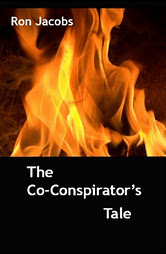It was 1972. I was a junior in high school. A number of my friends and I were sitting in the audience at the Amerika Haus in Frankfurt am Main, Germany waiting for the speaker to appear. A few minutes after 8:00 PM a gray-haired man who looked a little like Mark Twain in the shadowy light of the stage sauntered out. "Good evening," he began. He arranged his drink on the podium. Then he leaned the top half of his lanky frame on the podium's wooden top. Kurt Vonnegut's court was in session for the night.
Idon't recall everything he talked about that evening, but do recall that he spoke rather critically about the nature of young people. It was his belief at the time that they were too interested in the short term solution. Hence their fascination with mood modifiers like LSD and other psychedelics. Unknown to us in the audience at the time, Kurt Vonnegut's son Mark was being institutionalized for a bout of some kind of mental illness that Mark wrote in his book about the experience was probably brought on because of a bout with psilocybin mushrooms. Like good kids, we sat there taking the scolding from this man who was as old as our fathers, only a lot hipper.
Two of the essential books on every literate, at least somewhat countercultural young person in the US's list at the time were Slaughterhouse Five and Cat's Cradle. The former is an antiwar novel that needs to be dusted off and read anew by every US resident who gives a sh*t about the direction our country has been going since it was written. We are all Billy Pilgrim--the novel's protagonist--and we can all decide to either make a difference or not. The second novel is an allegory about a lot of things. There's a substance called Ice-Nine that cannot touch water without instantly freezing it. Not only does this substance freeze the water it first touches; it continues to freeze all the water that that water touched and so on, potentially freezing all the water in the world. In fact, that's how the book ends. The rock band The Grateful Dead named their publishing company Ice Nine. Interestingly enough, the Grateful Dead also represented another concept presented by Vonnegut in Cat's Cradle: the karass. Simply put, a karass is a group of people who, unbeknownst to them, are collectively doing God's will in carrying out a specific, common, task. The idea became the model for more than one group of young folks trying to put together a collective living situation.
Although I re-read both of the above books every couple of years, the Vonnegut novel that I favor the most is God Bless You, Mr. Rosewater. The story of Eliot Rosewater, a WW II veteran who is also the scion of a wealthy industrialist, this novel might be Vonnegut's most pointed piece of social criticism. The protagonist follows the road expected of him after his military service--he finishes college, marries properly and joins the family business. Then he has an epiphany and decides to use his share of the family fortunes to help out the hopeless. He sets up a philanthropic office in a small town in Indiana and gives away money to anyone who asks for it. The Foundation's slogan is "Don't kill yourself, call the Rosewater Foundation." A family lawyer wants to get Eliot declared insane in order to get the money in someone else's hands. Yet that is a mere subplot. The real story is about human redemption and Eliot's belief that almost everyone has some good in them. Interspersed throughout the book are incisive critiques of the history and nature of US capitalism. Yet, it is a very funny novel.
Kurt Vonnegut's insights will be missed. It's not that no one else had or will have insights like those of Mr. Vonnegut. It's just not that likely that anyone will ever deliver them with such humor and humanity. He is already missed. Po-tee-weet.





